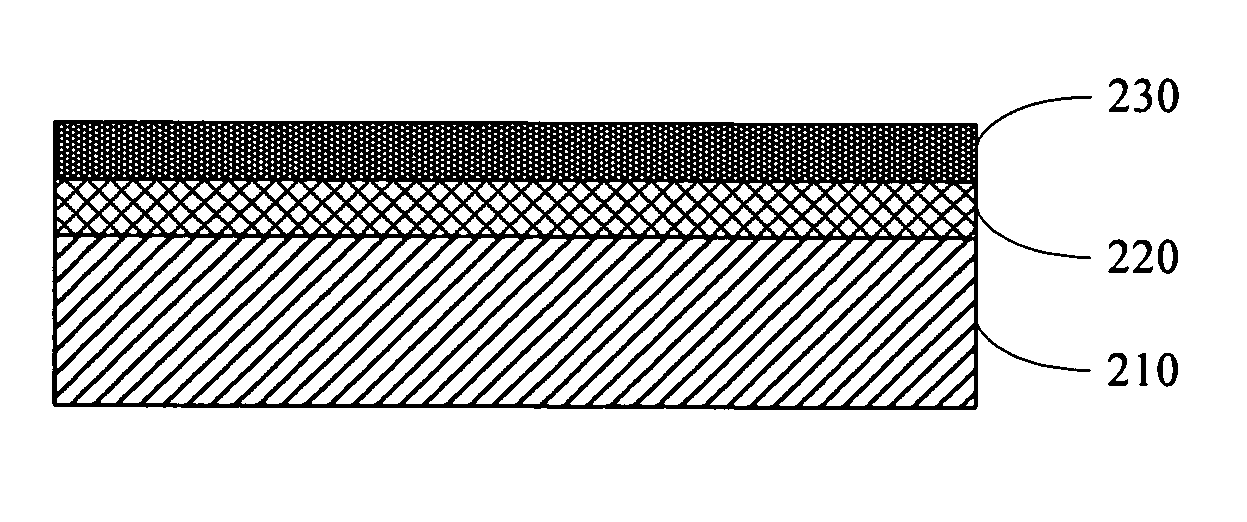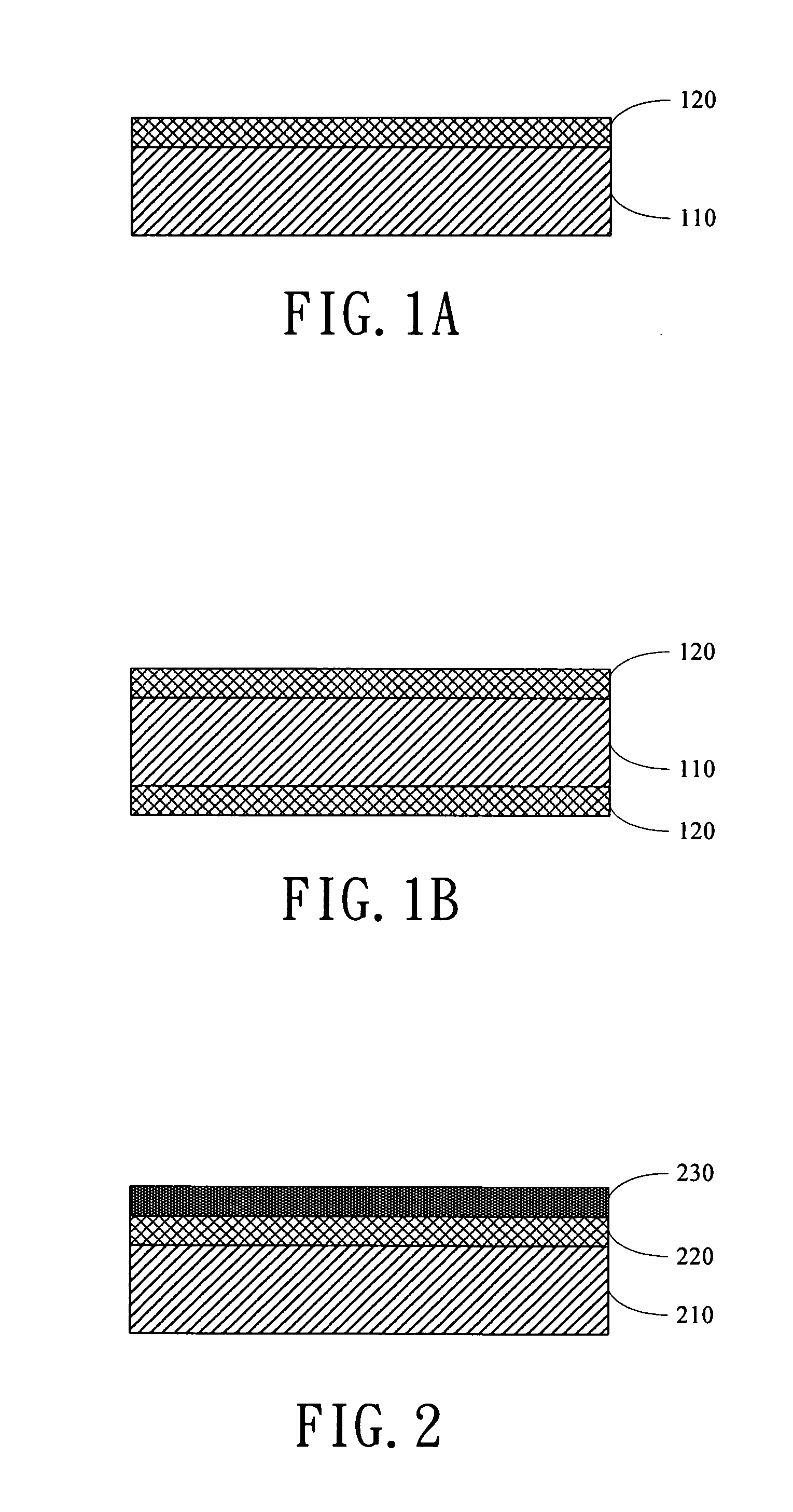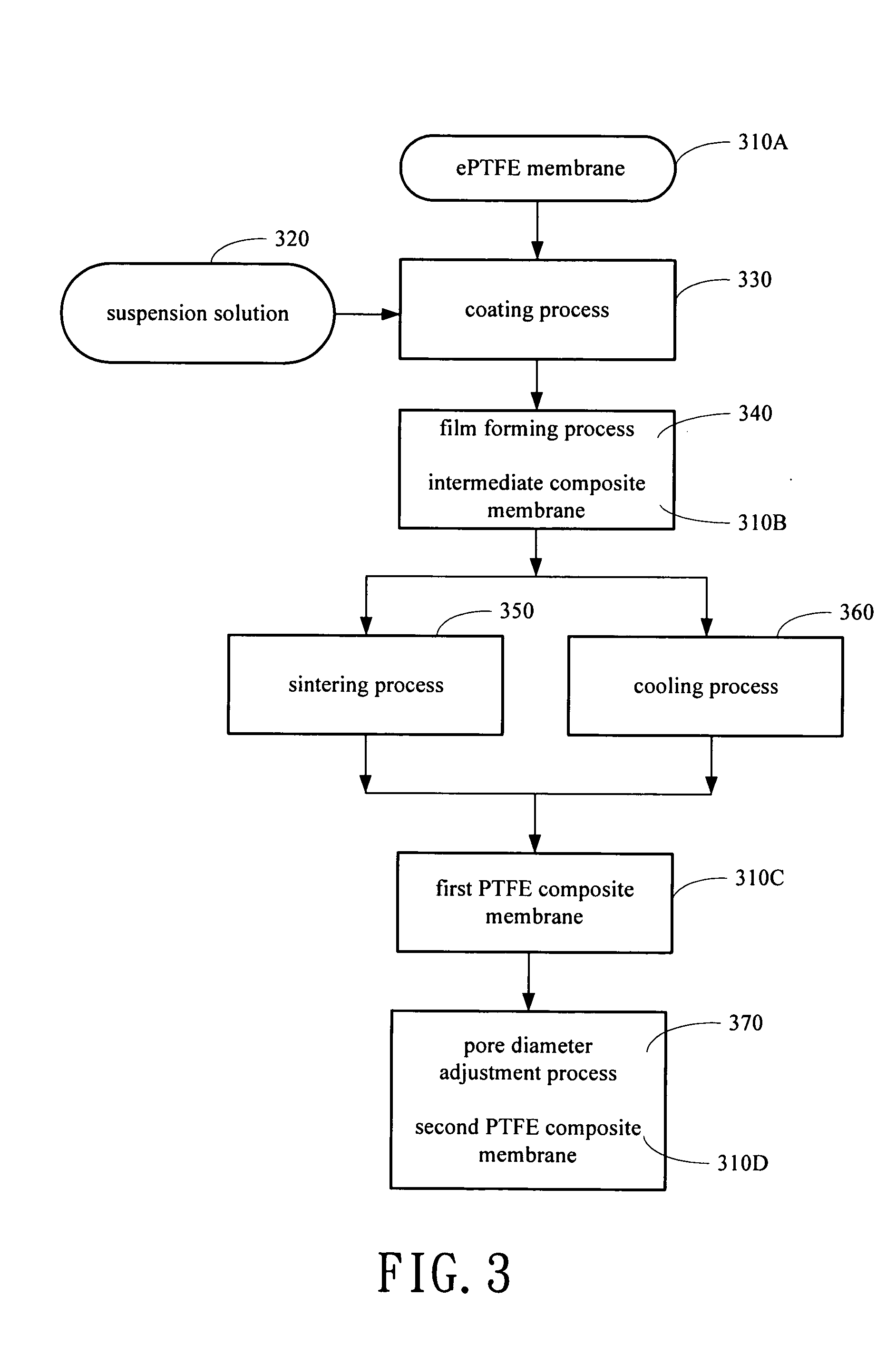Composite membrane and method for forming the same
a technology of polytetrafluoroethylene and composite membrane, which is applied in the field of composite membranes, can solve the problems of limited microfiltration application of eptfe membrane to membrane separation, and achieve the effects of reducing sintering time, preventing serious shrinkage of eptfe membrane, and prolonging the application of ptfe membran
- Summary
- Abstract
- Description
- Claims
- Application Information
AI Technical Summary
Benefits of technology
Problems solved by technology
Method used
Image
Examples
first embodiment
[0014] In the present invention, as shown in FIG. 1A a composite PTFE membrane comprises an expanded PTFE (ePTFE) membrane 110 and a sintered porous PFFE membrane 120, wherein the pore diameter of the ePTFE membrane 110 is about 0.02˜1 μm, the average pore diameter of that is about 0.2˜0.8 μm, and the thickness of that is more than or equal to 10 μm. Moreover, the pore diameter of the porous PTFE membrane 120 is less than or equal to 0.5 μm and the average pore diameter of that is about 0.01˜0.4 μm, which is formed on one surface of the ePTFE membrane 110 by a sintering process. Specifically, the porous PFFE membrane 120 has porous structure with interconnected channels formed by fusing the fine PTFE powders coated on the ePTFE membrane 110, with particle diameter of about 0.01˜1 μm and average diameters of about 0.05˜0.8 μm.
[0015] In this embodiment, the sintering temperature is about 330° C.˜520° C. and the sintering time is less than or equal to 20 minutes. The sintering process ...
third embodiment
[0020] As shown in FIG. 3, the invention discloses a method for forming a composite PTFE membrane. At first, an ePTFE membrane 310A is provided that has a first surface and a second surface. A suspension solution 320 containing PTFE fine powders is provided and coated on the first surface of the ePTFE membrane 310A by a coating process 330. The coating methods, for instance, include spraying, roller coating, blade coating, dip-coating, spin-coating, etc. The suspension solution 320 containing PTFE fine powders is selected from a group consisting of the following or any combinations of the following: unsintered PTFE fine powders, thermoplastic fluorinated organic polymers, and low molecular weight PTFE. Then, a sintering process 350 is performed on the first surface of the ePTFE membrane 310A and a cooling process 360 is performed on the second surface of the ePTFE membrane 310A to form a sintered porous PTFE membrane on the first surface so as to form a first composite PTFE membrane...
PUM
| Property | Measurement | Unit |
|---|---|---|
| thickness | aaaaa | aaaaa |
| pore diameter | aaaaa | aaaaa |
| pore diameter | aaaaa | aaaaa |
Abstract
Description
Claims
Application Information
 Login to View More
Login to View More - R&D
- Intellectual Property
- Life Sciences
- Materials
- Tech Scout
- Unparalleled Data Quality
- Higher Quality Content
- 60% Fewer Hallucinations
Browse by: Latest US Patents, China's latest patents, Technical Efficacy Thesaurus, Application Domain, Technology Topic, Popular Technical Reports.
© 2025 PatSnap. All rights reserved.Legal|Privacy policy|Modern Slavery Act Transparency Statement|Sitemap|About US| Contact US: help@patsnap.com



